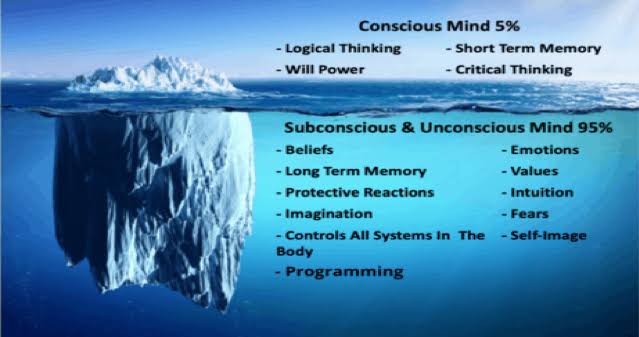Break the Cycle of Trauma: Re-parent Your Inner child.
- Somya Pandey

- Dec 31, 2021
- 6 min read
Updated: Feb 2, 2022

“Finally, the extent of his abhorrent behavior caught up to him. Seeing his son cowering in the corner with unadulterated fear, fear of being yelled at and beaten by his father, felt like a punch in the gut for him. His anger issues, his proclivity to violence and infidelity, his failed after failed relationships, his disintegrating marriage, the fear of losing the custody of his only child, a child he loved with all his heart irrespective of how he behaved as a parent, it all finally sunk in his mind. He realized he could not go on like this. He realized he wasn’t happy no matter how hard he tried. It was like he was stuck in an endless loop where similar situations repeated in all the walks of his life. He decided enough was enough. He was going to change this. He was going to dig deeper and give his life a one-eighty degree turn. The answers to his questions lay in his childhood, the family environment he grew up in, the interactions with his parents and peers created the man he has become.”
Humans are paradoxical creatures possessing both a complex and a simple sense of consciousness at the same time. We are an amalgamation of every age we’ve ever been, all at once. We carry the wisdom of our present selves with the innocence of our inner child. People who experienced trauma or neglect in their childhood have wounds that have been buried deep into their subconscious minds. Even the people who had a generally positive environment while growing up have the impressions of the negative experiences they suffered, stuck in their psyche.
It is our childhood, especially the impressionable age of 0-4 years when our subconscious mind is formed. It is the age when we experience emotions for the first time. It is the age we learn to process those emotions, witness the interactions of our parents and elders, learn to create and hold boundaries or a lack thereof, our behavioral patterns and other nitty-gritty.
But first, who is our inner child?
“Most of us can only recall important events in our childhood. The inner child tends to be pushed aside when we grow up and develop our identity as an adult. However, the unresolved hurtful feelings that we have carried since childhood still reside in our memories and body, whether we are aware of them or not." - Yong Kang Chan
Our inner child is a part of ourselves that’s been present ever since we were conceived, through utero and all the developing years after where we were young and developing into tender selves: baby, infant, toddler, young child,, and middle school year.
All of us have an inner child. Your “inner child” is a part of your subconscious that has been picking up messages way before it was able to fully process what was going on (mentally and emotionally). It holds emotions, memories, and beliefs from the past as well as hopes and dreams for the future.
So, how does this inner child come into play in the way we experience life?
Every person has certain problems plaguing their lives. Some lack the skills of effective communication for a successful and healthy relationship, some are dealing with destructive behaviors like addiction, self-sabotage, some suffer from an identity crisis, and the omnipresent lack of self-worth.
Everyone suffers from these issues and they manifest and culminate differently for each person, but they are all linked to one thing: conditioned behavior practiced since childhood.
How is this related to our parents? Are they bad?
Not necessarily. Ideally, our parents are two self-actualized people who allow their children to be seen and heard as the unique individual they are. The reality is that we live in a culture that does not reach conscious awareness, so most of us are born to unconscious parents.
Our parents are repeating the same patterns they experienced in their own childhood and home environment. They are operating from their own wounded shadow self because they never got to learn the skills for productively processing their emotions or never even learned the very concept of the need to process their emotions.
“Thich Nhat Hahn, a Zen Buddhist monk, once said, “If you look deeply into the palm of your hand, you will see your parents and all generations of your ancestors. All of them are alive at this moment. Each is present in your body. You are the continuation of each of these people." -Yong Kang Chan
It’s imperative to understand that our parents act only from their own level of awareness. We can only give something we have practiced giving ourselves. So an outright blame game is counterproductive and can lead to even more strained relations with our parents and family.
But why is it necessary to heal our inner child?
We tend to be protective and defensive around our childhood experiences. The answer as to why inner child healing and reparenting are necessary is very simple. To experience a rich inner world. To experience unadulterated unconditional love from ourselves. To learn empathy, kindness, and compassion. To develop a strong sense of self. And most importantly, become emotionally strong and conscious people who are aware of their responses and reactions and do not become the glutton for punishment and averse to our own happiness.
The truth is we have a unique opportunity to heal and consciously choose different behavior as adults. Regardless of what we have experienced in our past.
Okay, so what is reparenting?
Reparenting is the act of giving yourself what you didn’t receive as a child, all the emotional understanding, nurturing, and kindness that you needed. The unconditional love and support that you deserved but were instead forced to believe that love and acceptance needed to be earned by doing certain things. The very notion of being unworthy of love if you didn’t behave in a certain way or didn’t align with the expectations of others. Reparenting is our responsibility towards ourselves. We owe ourselves that much.
When is the right time to reparent ourselves and how can we begin it?
As soon as you become aware of your problems and their cause. Anyone can do it. It takes time, commitment, and a lot of patience. You will have to show up for yourself every single day. No excuses. No shortcuts. There are absolutely no quick fixes. But it will allow you to heal, forgive, move on. Getting to experience happy, nurturing, and fulfilling relationships, friendships, and companionships is a happy by-product
There are four pillars of reparenting: Discipline, Joy, Emotional Regulation, and Self-care.
Depending on our life experiences, some of these might be more difficult than others.
Discipline is often the hardest part because we are slaves to comfort and enforcement of discipline usually takes a negative connotation in our minds.
Experiencing joy is difficult for some people because of the feeling that they don’t deserve it. That they need to earn it.
That’s why we need patience with ourselves, for ourselves. The result is a deeply fulfilling life.
So, for starters, here is how to begin the process.
1.Breathe. Remember that reparenting is a process. It’s not a matter of a few days or weeks or months. And doing too much can quickly overwhelm us, leading us to fall back to our old patterns. Whenever you feel it’s getting too intense or uncomfortable, pause and breath. Go at a comfortable pace. Comfortable and consistent.
2.Inculcate the habit of keeping promises to yourself. Start small. Make a promise to yourself every day and stick to it. It can be as small as drinking 8 glasses of water or listening to a couple of songs or writing a page in your journal or a 10 minutes meditation session. Anything that doesn’t seem too much to you. Just avoid making promises that consume too much time initially. Anything from a couple of minutes to half an hour is good to go.
3.Confide in someone you trust(other than your parents). Tell the person that you are beginning this journey. Do not involve your parents as it can hurt their feelings by making them feel inadequate as parents. Reparenting is for you to heal, not for them to feel bad. Tell your friend or partner or a sibling. Any support would be helpful.
4.Indulge yourself. Ask yourself what you need at the moment? What can you do that would make you happy? It can be as small as a nice and warm bath, or some massage and spa, or even that snack you love so much but deny yourself. Go sunbathing if you feel like it or swim. Or jump in that puddle while it’s raining. The key is to recognize your needs and wants, get in sync with your intuition.
5.Learn to celebrate yourself. If we were not recognized, celebrated, and seen for the unique individual we are, we will quickly disregard the reality that we are showing up for ourselves. Reparenting is difficult. Its soul works. Acknowledge the courage it takes. Own your progress. Celebrate the person you’re becoming.
In my next blog, I will tell in-depth about the various ways you can reparent yourself, indulge, and heal your inner child. And on reading this, if you feel encouraged to start your own journey, more power, and love to you.
“Hold the hand of the child that lives in your soul. For this child, nothing is impossible.” ~ Paulo Coelho”








Comments